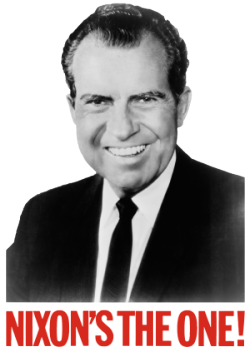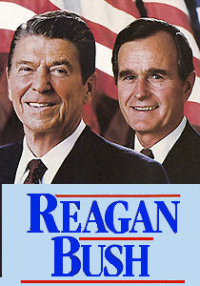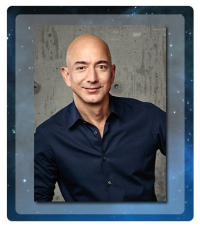I hate to brag, but I wrote about 2018 over a decade ago, when I first published this blog’s most important piece, “The Nixon Thesis of Conflict.”
 Here is how I described it then.
Here is how I described it then.
“Its assumptions include the ideas that political adversaries are enemies, that politics is a form of war, that attack is always better than defense, and that the system is always under threat from outside.”
It is only because those people who came of age during the Nixon period still live, and dance to its tune, that we have Trump. Trump is the Nixon Thesis of Conflict, dialed to 11.
- Trump supporters deny the reality of trans people.
- Trump supporters are racists.
- Trump supporters are sexists.
- Trump supporters hate Hispanics.
- Trump supporters hate gays.
- Trump supporters hate China.
Trump supporters distrust technology. They ignore climate change even while Florida drowns. They want to give health care to the “free market,” even knowing that doesn’t work. They want to kill Social Security and Medicare, having already handed that money to defense contractors and billionaires. They hate Medicaid. They prefer private colleges to public ones.
Oh, and they want to privatize the VA.
Isn’t there something wrong with this picture?
If you’re hating on most people, and calling them “haters” when they resent it, aren’t you just asking for trouble?

Not necessarily.
Many popular people have dropped off the Trump Train in the last two years. Even if 90% of Republicans love them some Trump, that means 10% don’t. Trump only got 46% of the vote last time, so take away 10% of that and you’re down to 41.4. You can’t win anywhere with that.
Meanwhile, those who are the subjects of hate are already voting in record numbers, around the country.
We saw all this play out last year, in Virginia, when Republican Ed Gillespie was running a campaign just like this against Democrat Ralph Northam. Northam won, going away. But at this point in the race, the media was filled with stories about how Gillespie’s strategy of hating on gay people, transgender people and black people, and his embrace of the religious right, was going to carry him to victory.
A lot of liberals think this is proof of some media bias. It’s not. It’s a product of history, and the way most journalists work.

Then there’s the reality of who owns the TV stations and newspapers. Republicans. It’s always been Republicans. It was Republicans even during the FDR era. Where do you think that “Dewey Beats Truman” headline came from, anyway? It was the assumption of Republican talking points, on the part of publishers (and the editors who worked for them) that drove it.
But something smells different this time.
You can smell it too.
For one thing, this Internet has been the dominant medium in America for a decade now. The year 2008 was a turning point, not just politically but in terms of our economy and our media. TV has been fading from view, replaced by streaming. Newspapers are closing every day, magazines are worthless.
Then just look at the stock market. Look at the valuations of Amazon, Microsoft, Google and Apple. Then consider how many other huge companies are following in their wake – Netflix, Salesforce, Adobe – and how many other, smaller companies stand behind them. Contrast that with what has been happening in oil and manufacturing. Exxon Mobil is worth less than it was 10 years ago.

The secret to understanding American politics is to take the long view and understand it’s money that drives the train. The age of oil is dead. This is the age of technology. And attacking technology industries, as Republicans have been doing by closing access to H1-B talent, and raising tariffs on Chinese hardware, is just not a winning strategy.
We know this. Jeff Bezos owns the Washington Post. Marc Benioff just bought Time. Steve Jobs’ widow owns The Atlantic. Microsoft is still the MS in MSNBC – they haven’t demanded Comcast take their name off that door. The CEO who has led them back to glory is Satya Nadella, and Indian immigrant.
I’ve said before that we’re playing the 1978 Game and despite the headlines I’m more convinced of this than ever.

Reporters were blindsided by Reagan and Reaganism for the same reason they’re blind now. They looked at the ground. They didn’t sniff the air. They didn’t understand the connection between economics and politics. They didn’t see the rising tide. Their political assumptions forbade them from predicting major, lasting change.
I saw it, because I happened to be in Houston, its epicenter. Houston in 1978 was booming while the rest of the U.S. economy was suffering. Just as, today, San Francisco and San Jose are booming while the rest of the country stagnates.
What happened to the economy after 1978 is that the benefits of oil did indeed spread across the economy. It spread into trade, it spread to the coasts, and then it spread into the interior. American control of resources drove the economy of the 1980s, of the 1990s, right into the late 2000s. Technology was ignored, its interests placated the way a homeowner treats a puppy. It didn’t have to work for political influence. It was given it.

Technologists know better. We know that Saudi Arabia is irrelevant, and that China is an adversary in business but also our trading partner, a source of our own wealth.
Technology has laid down a few quiet bets on this election, but its influence is going to become more obvious as we approach 2020. Technology knows what it wants from government and it’s going to get it.
Next to that reality, everything else is details.









